#thesis writing
Text
How to set up a research journal
This is just one way you can set up a research journal but it's helping me tremendously so maybe it also works for you. My set-up is partially inspired by this video by Answer in Progress and I suggest you check out their curiosity journal.
Preparation
First you need a notebook. The trick is to find a notebook that you're not afraid to "ruin". We all want a really neat, aesthetic research journal, but the reality looks more like hasty scribbles, but that's okay, that's where the research breakthroughs happen.
I personally bought a cheap lined notebook from Søstrene Grene that I thought looked cute and put a sticker on it. That way I feel good about using it but I also don't mind when my handwriting gets messy because it was only like 3€.
You should also stock up on pens you like writing with. Different colour highlighters and post-its are also a good idea but not a must. Keep it cheap but comfortable.
Title Page
Here you should put down all the really important information: year, title, deadlines, word count, supervisors. Maybe add an inspirational quote to spice it up but keep it simple and relevant.
Key
This should either be your next or your last page. I personally use the last pages of my journal so I can add thing and find it easier. Your key is there to list abbreviations and symbols.
For example, I have different symbols for statistics, dates, new terminology, questions, breakthroughs, important notes and abbreviations for the most important terms in my field. It's shorter to write T9N than Translation.
The trick here is to have enough abbreviations and symbols to save time and effort but not so many that you constantly have to look back and forth between your page and key. They should be memorable and not easy to confuse.
Topic Mind map
If you hate mind maps you can skip this of course or use a different method but what helped me is to visualise all the topics that connect to my research project in a mind map. I then colour-coded the main groups of topics with my highlighters. It helps me to keep an overview on how many topics I need to do research on.
Proposal
If you're writing a thesis/dissertation it can be helpful to have a page set aside for your proposal and take some bullet point notes on methodology, chapter structure, research context, aims and objectives and think of some titles. You can also do this for your lit review and a list of works to include.
Hypothesis and Question Pages
I set aside four pages for this but you can adjust this to your needs. The first page is my hypothesis. It doesn't have to be fully formed yet, it can just be bullet points with five question marks. You can always revise and update it but it is important to keep an eye on what you're actually trying to find out.
The next idea is basically just stolen from Answer in Progress: a section for big questions, medium questions and little questions. These aren't necessarily hypotheses you aim to answer but questions you have about your topic that might be good to look into (maybe they lead somewhere, maybe they don't).
Research Notes
Now comes the big, fun part. Research notes are allowed to be a little messy but you should have some sort of system so you can actually find what you're looking for afterwards. I'm currently just looking at books and articles so that's what my system is based on. You can totally adjust this to include other forms of research.
What I do is that I put down and underline the author and title of my source. Underneath that I use my highlighters and mark the topic of the paper based on how I colour-coded them in my mind map. You might have to do this after you've finished reading. For example, if a text talks about censorship and dubbing in Germany, three of my topics, I will draw three lines in light blue, dark blue and red, the colours I chose for those topics. This way you can easily browse your notes and see which pages are talking about which topics.
When it comes to the actual research notes, I include the page number on the left and then take bullet point notes on whatever is relevant. These are often abbreviated and paraphrased but if something is especially important I will write down a full quote.
As mentioned earlier, I have a key of symbols I use so I can simply put down a '!' in order to differentiate a research breakthrough from a normal note. You can insert your own thoughts much more easily when you know you'll be able to tell them apart later on. At the end of each article, book or even chapter I write down my main takeaway.
Other Notes
This is your research journal and you can do with it what you want. I also added lists of films that might be relevant for my research, a list of databases and publishers to check for papers and tips on research strategy.
If you're working with interviews or surveys you could write down your questions. If you're nervous about your research you could include a list of reasons why your research project is important or why you're doing it. You can include a to-do list or a calendar to track meetings with supervisors. Anything that helps you with your research.
#gradblr#studyblr#studyspo#study tips#research#research journal#dissertation#thesis#thesis writing#academia#academic research#academic writing#journal#bullet journal
1K notes
·
View notes
Text
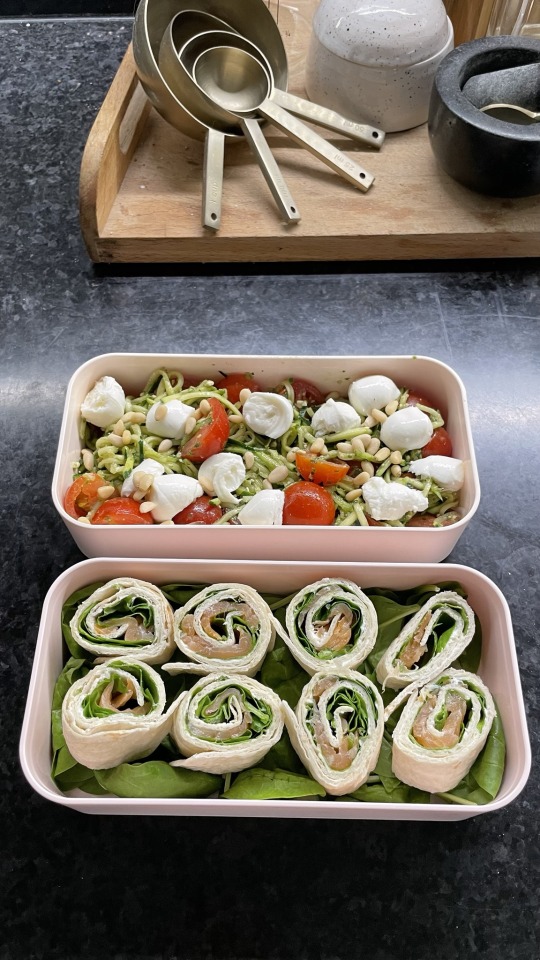


Lunch prep for the office and a run at home, because my home shower is just that much better 😌
#studyblr#studyspo#lunch prep#meal prep#running#fitspo#light academia#macbook#thesis#thesis writing#academia#coffee#chai
281 notes
·
View notes
Text
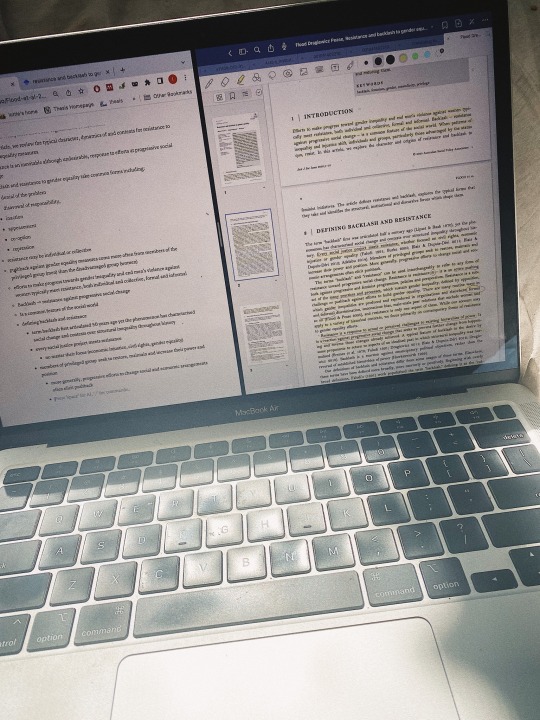

17.07.2023—brb birthing a thesis. currently in a love/hate relationship with the literature review (it’s mostly hate)
#studyblr#studyspo#study notes#bullet journal#study motivation#study blog#athenastudying#stationery#studying#study#thesis#gradblr#thesis writing#essay writing#polisci#heydilli#heygutlcss#heycoral#hey calamity#heykenzie#heyzainab#heychenleyah#heyblake#heyzo#lookdivo#lookstudyblr#aesthetic#study vibes#studysthetic#dissertation
290 notes
·
View notes
Text
Since I just finished my bachelor thesis and have all this -for now- unnecessary knowledge swirling around in my head, I let it out here, in case anyone can find it useful.
I present: the biggest (formating & general) rules in thesis writing (as proposed by my German professor):
1. Per page: at least 2 maximum 4 paragraphs. Professors don't like to have one huge block of text for more than half a page. They will be less likely to want to read your paper.
2. Figures and Images: put them in the text where they are spoken about, don't just refer to them being in the appendix. It disrupts the reading flow and no professor likes to shuffle back and forth in a paper multiple times. Also, images and figures should be centralised on a page, seem coherent with each other in their entirety (especially if you created them yourself, use one colour and design pallette if possible) and be named correctly. Additionally, ich you use more than 3 or 4 images/figures, have a table of tables/figures in the front of your paper after table of contents.
3. Use figures and Images - be visual, make your thesis as easy as possible to understand. No one likes to read something and have his brain in knots the whole time.
4. Use times new Roman (or Arial) in size 12, 1.5
5. Recap: If your paper is really long, we're talking about 45 pages plus and you are talking about something from chapter 2 in chapter 7, briefly (!) recap it for ease of understanding and to reinforce your red string (roter Faden).
6. Subtitles: rather have too many than too few subtitles, they make it easier to navigate the paper and help you keep track of the smaller sections (they can also help in the writing process as too not lose focus of what you are doing).
7. Limitations and future research: at the end of your paper, after the discussion and before the conclusion, you have to name limitations. If you think you had none, look again. NO paper, none at all has no limitations. If you can think only of a few, you can also add them in one or two sentences to the conclusion, but it's better to have a separate part. For theses or papers in general, common limitations are time constraint, limited access to data, limited know-how, etc. After limitations, you can have another small chapter called "future research", here you can put all the ideas that you had during writing, which are in relation to your main topics. Maybe you would have liked to research more into a specific area, or you were missing key information somewhere. In future research you can put all the ideas you would like to see researched in the future.
8. Page numbers: i hope you were clever and formatted your document with page numbers, titles and subtitles before even starting to write (if you weren't, like me), it's not horrible, but it can be slightly annoying. Don't try to do it by yourself if your not sure. Just don't. You will probably get frustrated and your stress levels will rise even more. Just Google "how to multiple kinds of page numbers Microsoft word" and follow the instructions exactly. This saves you time and nerves. Usually in theses, you use Greek page numbers (I,II,III,IV,V,VI,...) For table of contents until the introduction, and then continue with them as soon as your bibliography starts. For the part in between (introduction until conclusion) you use Roman (?) numbers (1,2,3,...).
9. Titles: if you use 1. 1.2 1.2.1 etc., make sure that it is necessary to use things like 4.5.5.1.1. A rule of thumb is, if you can't say 2 (i.e. 4.5.5.1.1 but not 4.5.5.1.2) than you don't need to say 4.5.5.1.1 at all but put that part unter 4.5.5.1. Of course, this rule does not work all the time, but I like to check the necessity of my structure in this way.
10. Plan more days: When you are nearly done with your writing process, many of us estimate 1 day for formatting and 1 for proof reading. This is, was and never will be enough. Especially not if you are a perfectionist. Plan at least 1 week for formatting and proofreading. Honestly I would recommend 10 days. Because after writing a huge paper like this you are bound to be exhausted and will crash some days. Also, it is good to take 1-2 days of distance from your work to have a fresh point of view. If I would write a bachelor thesis again, I honestly would calculate 2 weeks for formatting and proofreading. If you have to "fix" your sources, definitely take 10 days. You will take 2 days for sources, if you have to find additional ones, or check them.
11. Last but not least: if possible, register your bachelor thesis (i.e. in Germany that is the point when you officially start your writing period (usually around 9-12 weeks) as late as possible. Do as much research, etc. before this time starts. I won't say write at least half of your thesis before you start this period and have all your questionnaires/interviews/or whatever research type you use ready to go. I won't say that, but well... Just, 9 weeks is nothing. Honestly, think about the 2 weeks towards proofreading, sources and formatting (+trying to get calm after being stressed continuously for 7 weeks (I was)). Just, if you think now is the time to register, wait another two weeks.
That's all for now, I know I will use this again for my master thesis, so I will leave this here for now. I hope it helps some of you too.🤗
#bachelor thesis#studyblr#university#student#studying#study#academia#bachelor of arts#thesis#thesis writing#studentthoughts#student tips#writing#formatting#formattingtips
635 notes
·
View notes
Text
Mutuals I need your help with my thesis!
I’m writing my thesis on fandoms and I’m including a part about Tumblr. I’ve talked with people irl but now I’m wondering ‘why didn’t I just post on Tumblr?’
So I’m wondering: How did you endup on Tumblr and why do you like this platform in connection to your fandoms?
reblog this or send me a DM with your answers, everything will be anonymized!
Stay golden!
Lexi
UPDATE: i submitted my thesis a couple of days ago so feedback isn’t needed anymore. Thank you so much for all the replies!
2nd UPDATE: I graduated!
#fandoms#marvel#peaky blinders#house of dragons#one direction#cosplay#anime#thesis writing#joining fandoms#harry styles#avatar the last airbender#avatar the legend of aang#gaang#the umbrella academy#casa de papel#shameless US#outer banks#five seconds of summer#Niall Horan
173 notes
·
View notes
Text
I've Submitted My Master's Thesis!!!
#studyblr#gradblr#grad student#thesis#thesis writing#my post#studyspo#writing#it was a bitch to write#i'm both happy and sad that its over
23 notes
·
View notes
Text
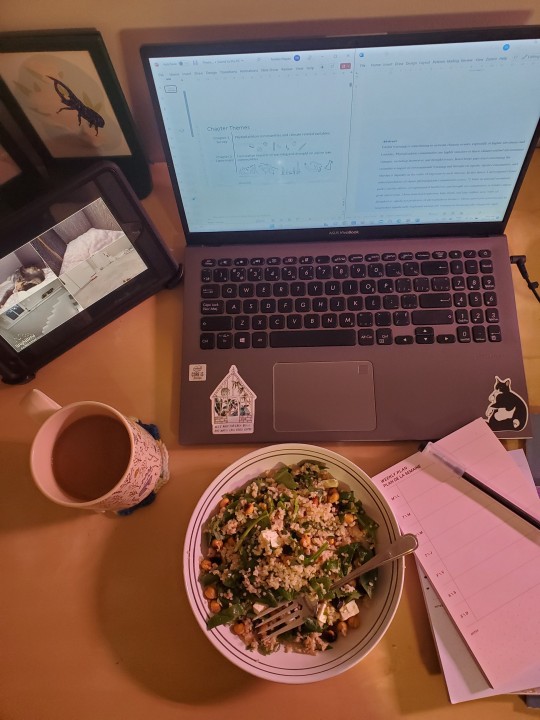
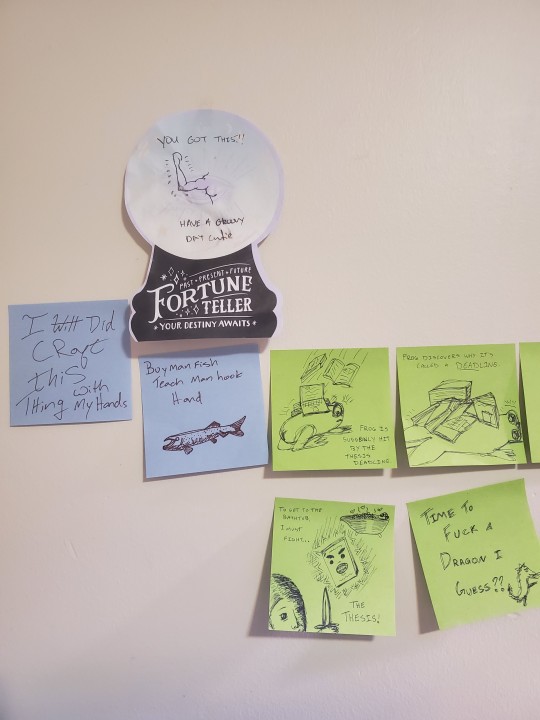

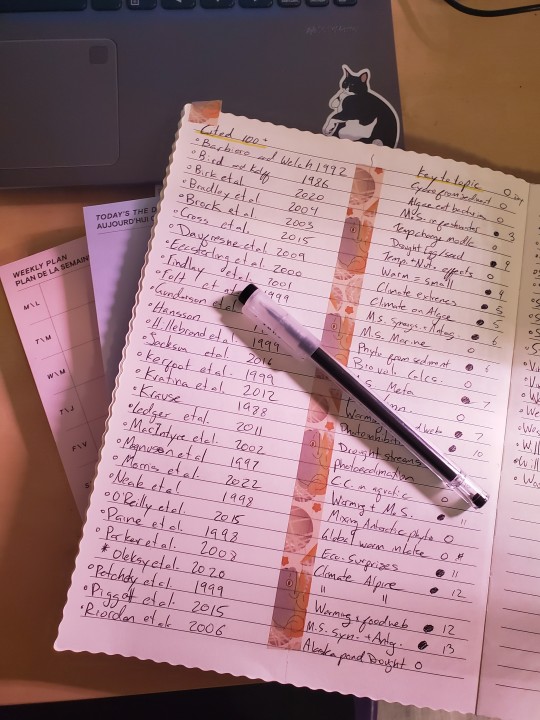
Thesis written
Coffee made
Strange inspirational sticky notes put up
Guess who's thesis will be submitted by the end of the week!
#i cant believe this 3 year journey is almost over#although honestly it was more like 4.5 years#but the covid years dont count#gradblr#deskblr#thesis writing#the final countdown plays loudly
99 notes
·
View notes
Text
Writing a thesis is easy. All you gotta do is constantly think “I should be working on my thesis” and then not work on your thesis for months and months.
28 notes
·
View notes
Text
Thesis writing tips from someone who is currently writing their thesis
As I was working on the first chapter of my thesis I realized there's some things to keep in mind in order to make things easier. I am far from having the whole thesis writing experience, but I felt like doing this post now that this first experience is fresh in my mind. There will be other thesis-related posts, for now if you want to check out my thesis work experiece you can read my daily entries on here. The posts in which I have included these entries are all tagged as #thesis diary if you are interested.
When reading articles and sources use different colours to highlight important informations. If you find parts of the text you know you will want to quote in your thesis use a specific colour and tab them. The more precise and accurate you are the easier it will be during the writing process.
Also annotating ideas and thoughts on the margins will help during the writing process, because you will be able to link your own ideas to specific sources that helped you to get there.
Have a separate file with all the footnotes you'll have to include. If you have everything written down, and just have to add the specific pages last minute you will save a lot of time. This way you'll also make sure to have all the footnotes written in the same style (this is a lifesaver, believe me).
In the same way have a separate file with the bibliography you'll have to include at the very end of your thesis. Writing it piece by piece as you add sources to your work will make sure you don't forget any source, and it will make the task less overwhelming.
If when reading articles and sources you write down notes, for the love of god write near each piece of information the exact page you found it on. If you don't you will waste so much time to find it when you'll need it. You can keep your notes in the format you like best, but having the number of pages near everything will save you so much time and work.
The more organized you are when collecting your sources the less time you'll waste when writing. So keep your notes clean, write down even those informations that seem useless at first, make sure to know exactly where you found each article, and so on, you'll thank your past self later.
I found having a notebook fully dedicated to my thesis very useful, to navigate in it quickcly I used big clear headers, tab notes, and an index. This will all become very helpful once you have gathered a lot of informations. The research process is messy, try do everything in your power to make it as organized and as clear as you can. (I am going to create a post dedicated to my thesis notebook, so keep an eye out for that if you are interested).
When you add things to part of the text you had wrote already make sure right way that the footnotes are still accurate. The more you pay attention to it right away the less confusing it will be later. If for example in a footnote you referred to the previous, and add a new one in the middle, things could get confusing so try to keep an eye out for these things as you do them.
Having a rough plan of the structure of your thesis can be helpful to know how to refer to certain elements in the text. I'll use my own thesis as an example, I am writing about some witchcraft accusations. Knowing where in the text there is going to be the first proper exposition of the facts is helpful to know how much context I have to give when writing about people or facts in other parts of the thesis.
Do you have interesting and useful informations that don't fit perfectly with the main body of your text? Footnotes are your bestfriends, you can add insight, comments, further explanations, without breaking the flow of the text.
Make sure each chapter starts with an introduction of what you are about to discuss, and end it with a small summary of what you said. This will make your writing look much more intentional, and ties in everything nicely together. Once you are sure of the order of the chapters you should also tie the chapters together, by hinting to the next one in the conclusion of each one.
I feel like these are all the potentally useful thing I have realized during my work so far. There's surely much more to be said, and as I learn more, I will make sure to share the useful informations I get. As mentioned I am currently working on a thesis notebook post! Till then I hope this was somewhat useful, thank you for reading!
#thesis tips#thesis advice#thesis#thesis journal#thesis diary#uniblr#university#college#historyblr#studyblr#studyinspo#studying tips#studying advices#thesis writing#thesis writing tips from someone who is currently writing their thesis#university thesis#final thesis#tesi#tesi di laurea#tips#advices#student tips#writing tips#writing advice#og post#mine#the---hermit#original post
412 notes
·
View notes
Text
slowly deleting all the 'seems' and 'i want to' and 'suggests' and 'think' from my research article and simply stating it as it is, as i believe it is. doing away with the carefulness. being open for attack and criticism, for someone to come in and tell me: no, it is not like that. not attempting to build an impenetrable fortress of an article or argument. leaving holes for others to look through, to patch up, to rip until they destroy my whole idea. there is no learning without making mistakes, there is no learning without being vulnerable. this is me standing up for myself. this is me not being afraid of making claims, of believing in what i have read and thought about for a year. embracing my vulnerability in argumentation, in philosophy. not hiding behind phrasing things so that they become impossible to argue with. i want to leave academia with my head held high, a firm belief i am often wrong and there is a lot i do not know or understand, but that is completely, utterly okay as long as i remain open. open to be proven wrong, to receive criticism, to share knowledge, ideas and recourses, to provide, and to, if necessary, fight.
#punk academia#dark academia#on leaving academia#learning means being vulnerable#it's okay to be wrong#and it is okay to trust yourself before you are proven wrong#thesis writing
42 notes
·
View notes
Text
I estimated a task to take 2-3 hours but it has taken 6 hours and still isn't done

#i thought rewriting two sections from draft to finish would be quick#and i'd get time to rewrite the mess that is the methods of that section#but alas D:#my posts#thesis hell#thesis writing#dissertation#dissertation writing#studyblr#thesis#writing#proof reading
25 notes
·
View notes
Text
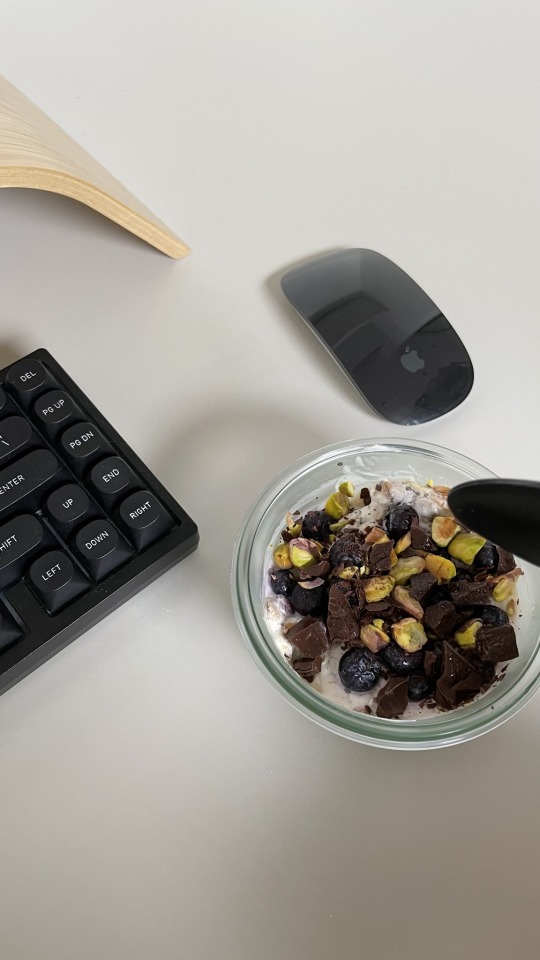
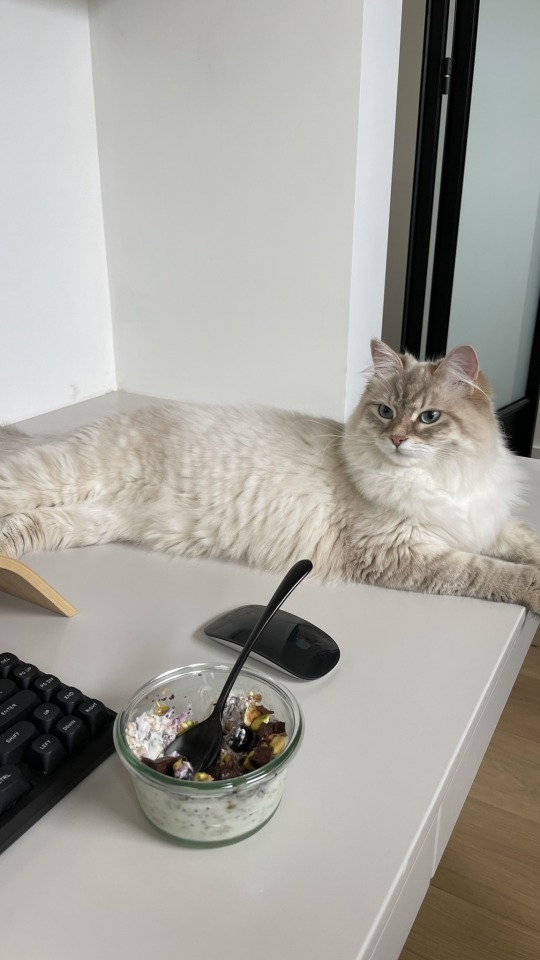
My favorite study buddy helping me through my thesis writing 🙌🏻🍀
#studying#studyblr#light academia#vetblr#vetmed#veterinary medicine#thesis#thesis writing#writing#med school#keyboard#keyb#keebs#study aesthetic#Kitty#siberian#siberian forest cat#neva masquerade#Stella#stelmaria
226 notes
·
View notes
Text
so proud of myself...
after many days of stressing myself over this... beating myself up about not being good enough… I finally sent my first draft to my professor.
I know it may not seem like much, but I have been so paralysed with fear and worry that I had been putting it off for literal years. I should have finished my studies two years ago, if not earlier.
but after two years of struggling with my BA thesis, I finally managed to move forward!
what's more - the chapter had been far from finished! I didn't do a great job! and I'm so happy with finally allowing myself to not be perfect! I managed to ask for help. such a simple and yet harrowing thing to do...
it's never too late to start all over again or finish this thing that had been weighing you down.
7 notes
·
View notes
Text






A golden day in all the ways 🧡
#personal#from sunday#me#mine#phd stuff#thesis#phd thesis#thesis writing#academia#autumn#coffee#golden#autumn 2023#2023#abroadadventure#england#uk#home
18 notes
·
View notes
Text
So deep in the methodology section that the next time someone even mention the word causal inference I am going to start chewing on their laptop without any explanation.
#thesis writing#haha NO#I love you philosophy of science ! ontology and epistemology !#i love you set theory !#but when I have to devote a full section to explain what process tracing is#justify every single aspect of case selection#and detail all my data sources like I actually sat down listes them at any point#I turn THIS CLOSE to feral#This is why we can't have nice things AAAAAAAAAAAAAAAAAA
27 notes
·
View notes
